
Lorenz Milton Hart was an American lyricist and half of the Broadway songwriting team Rodgers and Hart. Some of his more famous lyrics include "Blue Moon"; "The Lady Is a Tramp"; "Manhattan"; "Bewitched, Bothered and Bewildered"; and "My Funny Valentine".
This is a list of notable events in music that took place in the year 1904.

Rodgers and Hart were an American songwriting partnership between composer Richard Rodgers (1902–1979) and the lyricist Lorenz Hart (1895–1943). They worked together on 28 stage musicals and more than 500 songs from 1919 until Hart's death in 1943.

Chicago is a 1975 American musical with music by John Kander, lyrics by Fred Ebb, and book by Ebb and Bob Fosse. Set in Chicago in the jazz age, the musical is based on a 1926 play of the same title by reporter Maurine Dallas Watkins, about actual criminals and crimes on which she reported. The story is a satire on corruption in the administration of criminal justice and the concept of the "celebrity criminal".
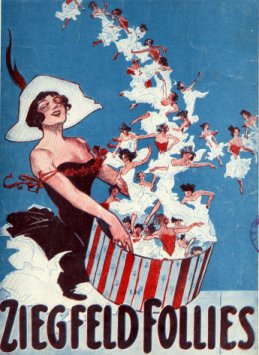
The Ziegfeld Follies were a series of elaborate theatrical revue productions on Broadway in New York City from 1907 to 1931, with renewals in 1934 and 1936. They became a radio program in 1932 and 1936 as The Ziegfeld Follies of the Air.

Billy Rose was an American impresario, theatrical showman, and lyricist. For years both before and after World War II, Billy Rose was a major force in entertainment, with shows such as Billy Rose's Crazy Quilt (1931), Jumbo (1935), Billy Rose's Aquacade (1937), and Carmen Jones (1943). As a lyricist, he is credited with many songs, notably "Don't Bring Lulu" (1925), "Tonight You Belong To Me" (1926), "Me and My Shadow" (1927), "More Than You Know" (1929), "Without a Song" (1929), "It Happened in Monterrey" (1930), and "It's Only a Paper Moon" (1933).
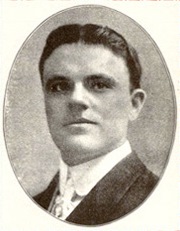
William Thomas Murray was one of the most popular singers in the United States in the early 20th century. While he received star billing in Vaudeville, he was best known for his prolific work in the recording studio, making records for almost every record label of the era. Murray was the best-selling recording artist of the first quarter of the 20th century, selling over 300 million records during the phonograph era.

"You're a Grand Old Flag" is an American patriotic march. The song, a spirited march written by George M. Cohan, is a tribute to the U.S. flag. In addition to obvious references to the flag, it incorporates snippets of other popular songs, including one of his own. Cohan wrote it in 1906 for his stage musical George Washington, Jr.
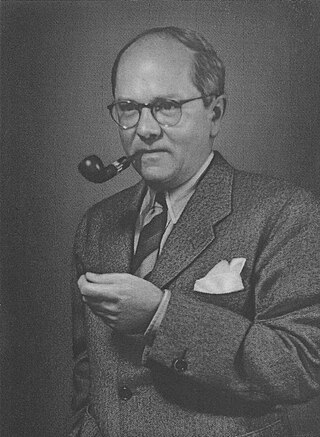
Richard Armstrong Whiting was an American composer of popular songs, including the standards "Hooray for Hollywood", "Ain't We Got Fun?" and "On the Good Ship Lollipop". He also wrote lyrics occasionally, and film scores most notably for the standard "She's Funny That Way".
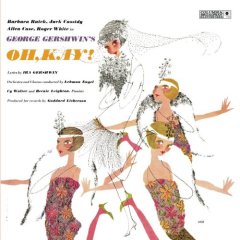
Oh, Kay! is a musical with music by George Gershwin, lyrics by Ira Gershwin, and a book by Guy Bolton and P. G. Wodehouse. It is based on the play La Présidente by Maurice Hennequin and Pierre Veber. The plot revolves around the adventures of the Duke of Durham and his sister, Lady Kay, English bootleggers in Prohibition Era America. Kay finds herself falling in love with a man who seems unavailable. The show is remembered for its enduring song, "Someone to Watch Over Me".

"The Yankee Doodle Boy", also known as "(I'm a) Yankee Doodle Dandy" is a patriotic song from the Broadway musical Little Johnny Jones, written by George M. Cohan. The play opened at the Liberty Theater on November 7, 1904. The play concerns the trials and tribulations of a fictional American jockey, Johnny Jones, who rides a horse named Yankee Doodle in the English Derby. Cohan incorporates snippets of several popular traditional American songs into his lyrics of this song, as he often did with his songs. The song was performed by James Cagney in the 1942 film Yankee Doodle Dandy, in which he played Cohan.

Collins & Harlan, the team of American singers Arthur Collins and Byron G. Harlan, formed a popular comic duo between 1903 and 1926. They sang ragtime standards as well as what were known as "coon songs" – music sung by white performers in a black dialect. Their material also employed many other stereotypes of the time including Irishmen and farmers. Rival recording artist Billy Murray nicknamed them "The Half-Ton Duo" as both men were rather overweight. Collins and Harlan produced many number one hits with recordings of minstrel songs such as "My Gal Irene", "I Know Dat I'll be Happy Til I Die", "Who Do You Love?" and "Down Among the Sugarcane". Their song "That Funny Jas Band from Dixieland", recorded November 8, 1916, is among the first recorded uses of the word "jas" which eventually evolved to "jass", and to the current spelling "jazz".

Forty-Five Minutes From Broadway is a three-act musical by George M. Cohan written about New Rochelle, New York. The title refers to the 45-minute train ride from New Rochelle to Broadway.

Little Johnny Jones is a musical by George M. Cohan. The show introduced Cohan's tunes "Give My Regards to Broadway" and "The Yankee Doodle Boy." The "Yankee Doodle" character was inspired by real-life Hall of Fame jockey Tod Sloan.
Henry Martyn Blossom was an American writer, playwright, novelist, opera librettist, and lyricist. He first gained wide attention for his second novel, Checkers: A Hard Luck Story (1896), which was successfully adapted by Blossom into a 1903 Broadway play, Checkers. It was Blossom's first stage work and his first critical success in the theatre. The play in turn was adapted by others creatives into two silent films, one in 1913 and the other in 1919, and the 1920 Broadway musical Honey Girl. Checkers was soon followed by Blossom's first critical success as a lyricist, the comic opera The Yankee Consul (1903), on which he collaborated with fellow Saint Louis resident and composer Alfred G. Robyn. This work was also adapted into a silent film in 1921.
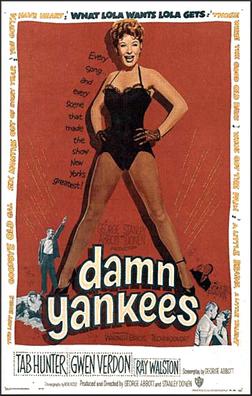
Damn Yankees is a 1958 widescreen musical sports romantic comedy film. It was directed by George Abbott and Stanley Donen from a screenplay by Abbott, adapted from his and Douglass Wallop's book of the 1955 musical of the same name, itself based on the 1954 novel The Year the Yankees Lost the Pennant by Wallop. The storyline is a take on the Faust legend and centers on the New York Yankees and Washington Senators baseball teams. With the exception of Tab Hunter in the role of Joe Hardy, the Broadway principals reprise their stage roles, including Gwen Verdon as Lola.

The Yankee Consul is a 1924 American black-and-white silent comedy film directed by James W. Horne and written by Raymond Cannon. With a screen adaptation by Lewis Milestone and Raymond Griffith, the film is based upon the 1903 comic opera The Yankee Consul by Alfred G. Robyn and Henry Martyn Blossom.
"Ain't It Funny" is a 2001 single by Jennifer Lopez.
Alfred George Robyn was an American composer, organist, conductor, and music educator. While his compositional output consisted of a wide range of music, he is best remembered as a composer of light operas and Broadway musicals. He composed the Broadway musicals Princess Beggar (1907), The Yankee Tourist (1907), All for the Ladies (1912), and Pretty Mrs. Smith (1914); many in collaboration with lyricist and playwright Henry Blossom. His compositional output also consisted of fourteen operas, two oratorios, Symphony in D minor, the symphonic poem Pompeii, a piano concerto, a piano quintet, numerous works for solo piano, and over two hundred songs. His best known work is the comic opera The Yankee Consul.
The Yankee Consul, also known as the Lieutenant Commander, is a comic opera in two acts with music by Alfred G. Robyn and a libretto by Henry Blossom. The opera premiered in Boston on 21 September 1903 at the Tremont Theatre. The premiere production was produced by Boston opera impresario Henry Wilson Savage, and starred Raymond Hitchcock as Abijah Booze. The work was staged on Broadway the following year at the 41st Street Broadway Theatre where it ran for a total of 114 performances from February 22, 1904 through July 2, 1904. The opera was adapted into a 1921 silent film of the same name.














